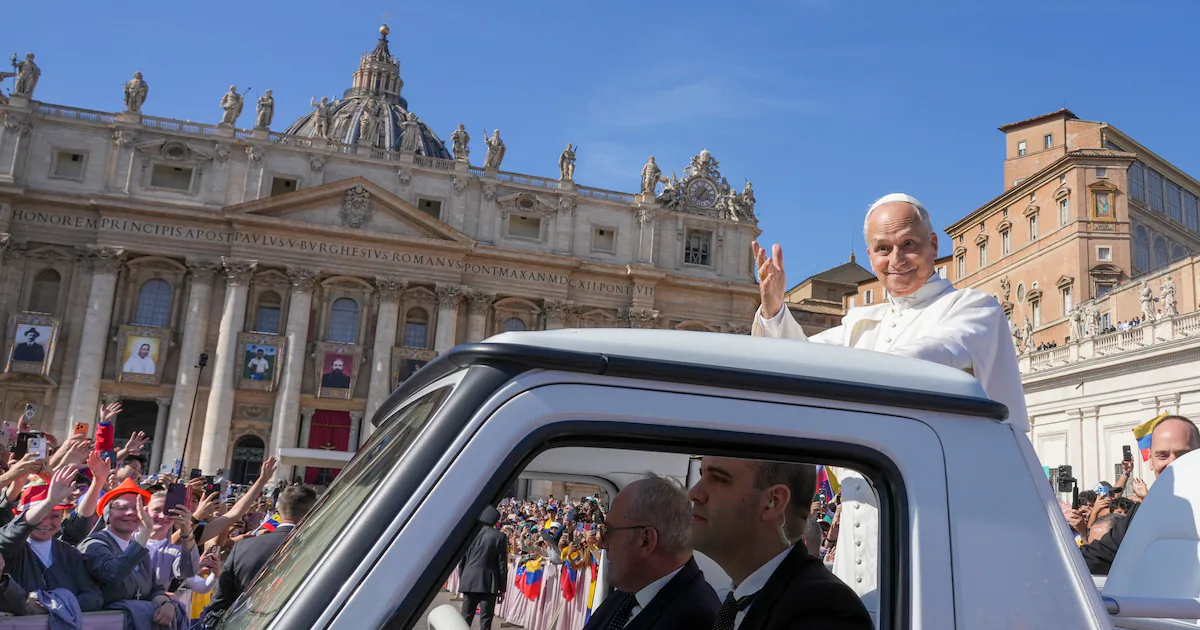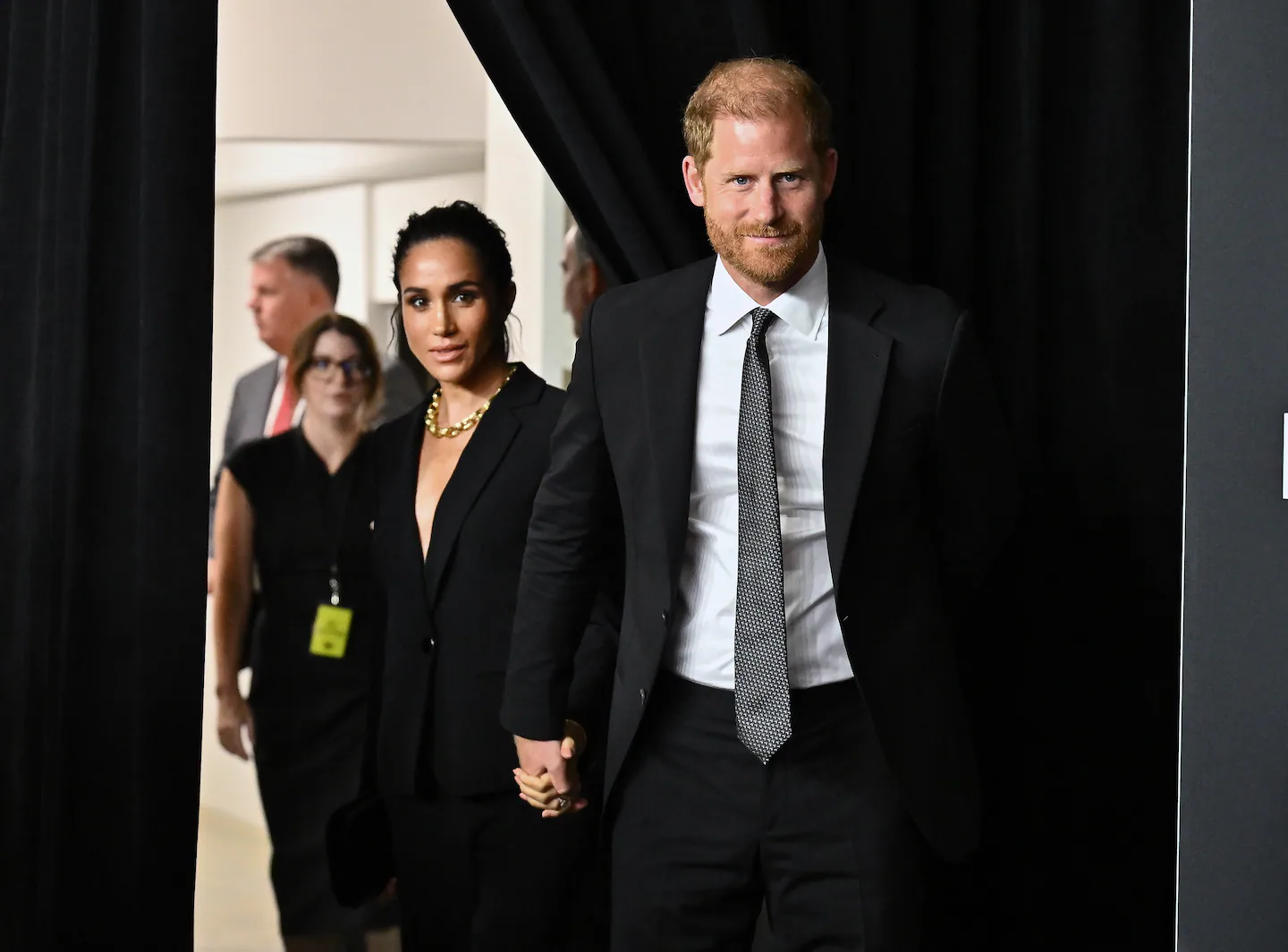Copyright Salt Lake City Deseret News

This article was first published in the State of Faith newsletter. Sign up to receive the newsletter in your inbox each Monday night. This week, I’ve been reflecting on the many expressions of Christianity and how leaders from different faith traditions speak about engaging with contemporary culture and the issues of the day. The impact of what faith leaders and other influential voices say often extends beyond theology and worship. The messages tend to influence how people vote, give, speak and live out their Christian identity in everyday encounters. In my recent reporting, I’ve been observing how faith leaders straddle instruction regarding questions that are not explicitly “religious,” yet they show up in public life and often have a moral dimension. On Oct. 9, Pope Francis released a 40-page document titled Dilexi Te (“I Have Loved You”). This Apostolic Exhortation, as the document is called, encouraged all Christians to care for the poor not only through material generosity, but through connection and compassion toward immigrants, refugees and those who are spiritually poor. Pope Leo called on Christians to resolve “the structural causes of poverty” and expressed hope for politicians and Catholic leaders to listen to the poor. Otherwise, he wrote, “democracy atrophies, turns into a slogan, a formality; it loses its representative character and becomes disembodied.” Pope Leo also wrote: “Unjust structures need to be recognized and eradicated by the force of good, by changing mindsets but also, with the help of science and technology, by developing effective policies for societal change.” While the text isn’t a novel doctrine, it refocused attention on the heart of Catholic teachings amid tightened immigration policies and growing class divides. Last weekend, I also spent some time with Christian Evangelical women in Texas. At a large “Share the Arrows” conference, women shared their conviction for fighting a “spiritual battle” against a culture that prizes individual pleasure and moral relativism. They were called to defend biblical truth on issues like abortion, marriage and gender identity. “When it comes to a popularity contest, Christians will lose every time. So go ahead and give it up — give up your desire to be liked, your need to be accepted,” said Allie Beth Stuckey, a podcaster and influencer. Women discussed why they believed that surrogacy, abortion and IVF clashed with Christian teaching. “The political has become the theological and the theological is our job,” speaker Katy Faust said. Stuckey called for women to engage in politics and cautioned against “compartmentalization” when it comes to Christian identity. “When you are a Christian, nothing is trivial. Nothing is mundane, and nothing is neutral,” Stuckey said. Lastly, I ended this past week by listening to the first interview with the new First Presidency of The Church of Jesus Christ of Latter-day Saints about their vision for the church. When journalist Jane Clayson Johnson asked the leaders about the role of women, President Dallin H. Oaks responded that God had “the choicest blessings” for his daughters and alluded to the progress made in the recent decade when it came to women’s leadership. When asked about advice for the younger generation, President D. Todd Christofferson said young people should view technology as a tool to “improve themselves, to progress, to grow, to reach out and bless others.” He continued: “But remember you have to be the master. You shouldn’t let it master you.” Peacemaking in secular life has also been a consistent message, including a recent one-week peacemaking plan and “digital bridge building.” Perhaps a through line in all of these examples is the effort among Christian leaders to help believers contextualize their beliefs in modern life and guide believers in translating their values and theological principles into practical actions on questions of morality, justice and belonging. Fresh off the press Here’s the full report from the “Share the Arrows” conference that I attended last weekend, where 6,700 women gathered in Texas. Their fierce leader is Allie Beth Stuckey, conservative Christian influencer and podcaster. Gen Z has shifted to the political right. Will it last? Professor Spencer Fluhman takes a look at the long history of “who is Christian” and proposes a more hopeful future. Faith in the charts Religion’s influence in American public life is growing, according to a recent survey by the Pew Research Center. In February of last year, 18% of Americans said religion’s influence had grown. The same opinion was held by 41% of U.S. adults a year later, in February 2025. It is the highest number on the measure that Pew has seen in 15 years. A few more takeaways from the new report: More Americans viewed religion positively in the past two years than between 2019 and 2022. Nearly 60% of Americans have a positive view of religion’s influence on public life in the U.S. “Either they say that religion’s influence is growing and this is good, or they say that religion’s influence is declining and this is bad,” according to Pew. In 2025, 58% of U.S. adults reported a “great deal” or “some conflict” between their religious beliefs and mainstream culture. It’s 10 percentage points up from 2024. Twenty percent of Americans believe religion has a negative influence on public life. Some say religion’s influence is increasing and see that as a negative trend. Others believe it’s fading and view that as a positive development. Another 21% take a neutral or uncertain stance. What I’m reading and listening to Since the release of her new book, Supreme Court Justice Amy Coney Barrett has given several lengthy interviews. Her latest conversation is with Ross Douthat at The New York Times, where Barrett discussed her vision of originalism and how the court evaluates precedent. While most of the interview focused on legal doctrine, Barrett had commented on running a large family and a high-profile job. — Interesting Times with Ross Douthat, The New York Times Nearly 7,000 Nigerian Christians died this year in a series of violent attacks. Just in June, nearly 200 people, including women and children, were slaughtered, Maggie Phillips reports. “Since 2009, Islamists — including Boko Haram and outside terrorist groups such as ISIS — have killed at least 52,500 Christians and displaced another 5 million of them, while destroying some 18,000 churches and setting 2,200 schools ablaze, according to a 2023 report by the Nigeria-based International Society for Civil Liberties and Rule of Law.” –Violent Attacks Just One Threat Facing Nigerian Christians, RealClear Investigations The religious revival in America looks a bit like “religious revolution,” David French observes in a recent column. —Something Is Stirring in Christian America, and It’s Making Me Nervous, The New York Times In a recent essay, Helen Andrews argues that society has undergone what she calls the “Great Feminization.” And it’s not a positive phenomenon, according to Andrews. She links this “feminization” to the rise of “woke” culture and cancel politics as academia, corporate and legal worlds have become increasingly dominated by women. The essay sparked controversy and debate on X. - The Great Feminization, Compact Magazine. End notes



